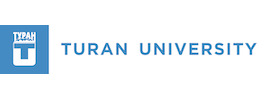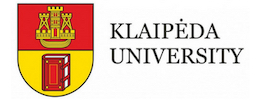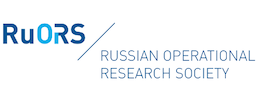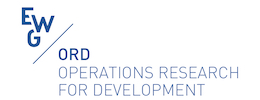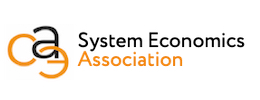在过去的几十年里,研究人员越来越多地在社会科学和人文科领域应用计算模型。MSBC-2024会议旨在创建一个开放的小组,让对计算机科学与社会科学和人文科学的结合感兴趣的研究人员和从业人员进行有效的沟通,以加强对社会经济现实的模拟和建模问题的关注、
会议历史
创造性社会中社会行为现象的建模和模拟 (MSBC-2019)
创造性社会中社会行为现象的建模和模拟 (MSBC-2022)
第二国际欧洲会议
立陶宛维尔纽斯
会议论文集:
Springer Proceedings MSBC-2022
(CCIS, volume 1717)
加入特刊Mathematics
(ISSN 2227-7390)创造性社会中社会行为现象的建模和模拟 (MSBC-2024)
第三届国际会议第二次索取文件
哈萨克斯坦阿拉木图创造性社会中社会行为现象的建模和模拟 (MSBC-2026)
第四届国际会议
详情将在稍后提供
国际项目委员会

Prof. Dr. Nitin Agarwal,
University of Arkansas
at Little Rock, USA
联席主席

Prof. Leonidas Sakalauskas,
Vytautas Magnus University, Lithuania
联席主席
国际程序委员会成员
– Prof. Dr. Nilufar Abdurakhmonova, National University of Uzbekistan, Uzbekistan
– Prof. Manzura Abjalova, Alisher Navoi Tashkent State University of Uzbek Language and Literature, Uzbekistan
– Prof. Nitin Agarwal, University of Arkansas at Little Rock, USA
– Prof Dr. Akaki Arsenashvili, Tbilisi State University, Sakartvelo
– Prof. Fuad Aleskerov, Higher School of Economics, Russia
– Prof. Dr. Elena Andreeva, Hanover Medical School, Germany
– Prof. Dr. Juozas Augutis, Vytautas Magnus University, Lithuania
– Prof. Adil Bagirov, Federation University Australia, Australia
– Prof. Laura Baitenova, Turan University, Kazakhstan
– Prof. Dr. Alexis Belianin, Higher School of Economics, Russia
– Prof. Gulmira Bekmanova, L.N. Gumilyov Eurasian National University, Kazakhstan
– Prof. Dr. Gordon Dash, University of Rhode Island, USA
– Prof. Dorien DeTombe, EWG on Ethics and OR, Netherlands
– Prof. Dr. George Kleiner, Financial University, Russia
– Prof. Vitalijus Denisovas, Klaipeda University, Lithuania
– Prof. Dr. Aiste Dirzyte, Mykolas Romeris University, Lithuania
– Prof. Dr. Cathal MacSwiney Brugha, University College Dublin, Ireland
– Prof. Dr. Walter Leal Filho, Hamburg University of Applied Sciences, Germany
– Prof. Ignacio Grossman, Carnegie Mellon University, USA
– Prof. Dr. Nella Israilova, Kyrgyz State Technical University, Kyrgyzstan
– Prof. Nina Kaiji, University of Rhode Island, USA
– Prof. Dr. Mikhail Kovalyov, United Institute of Informatics Problems, Belarus
– Prof. Marek Kubis, Adam Mickiewicz University in Poznan, Poland
– Prof. Suria Kumacheva, St. Petersburg State University, Russia
– Prof. Nelson Maculan, University Federal of Rio de Janeiro, Brasil
– Prof. Oleksandr Makarenko, Kyiv Technical University, Ukraine
– Prof. Orken Mamyrbayev, Institute of Information and Computational Technologies, Kazakhstan
– Prof. Dr. Madina Mansurova, al-Farabi Kazakh National University, Kazakhstan
– Prof. Dr. Vladimir Mazalov, Petrozavodsk University, Russia
– Prof. Peep Miidla, Estonian Center of Industrial Mathematics, Estonia
– Prof. Marek Miłosz, Lublin University of Technology, Poland
– Prof. Batyrkhan Omarov, Al-Farabi Kazakh National University, Kazakhstan
– Prof. Dina Oralbekova, Satbayev University, Kazakhstan
– Prof. Dr. Diana Rakhimova, al-Farabi Kazakh Natioal University, Kazakhstan
– Prof. Dina Razakova, Turan University, Kazakhstan
– Prof. Dr. Sankar Kumar Roy, Vidyasagar University, West Bengal, India
– Dr. Maxim Rybachuk, Financial University, Russia
– Prof. Roman Slowinski, Poznan University, Poland
– Prof. Christos Skiadas, Technical University of Crete, Greece
– Prof. Alexis Tsoukias, LAMSADE, France
– Prof. Dr. Ualsher Tukeyev, al-Farabi Kazakh National University, Kazakhstan
– Prof. Mafura Uandykova, NarXoz University, Kazakhstan
– Prof. Sigitas Vaitkevicius, Vytautas Magnus University, Lithuania
– Prof. Adilson Xavier, University Federal Rio de Janeiro, Brasil
– Prof. Edmundas-Kazinieras Zavadskas, Vilnius Technical University, Lithuania
– Prof. Xiaobo Zhao, Tsinghua University, China
组织委员会

Prof. Dina Razakova,
Turan University, Kazakhstan
主席
组委会成员
– Laura Baitenova, Turan University, Kazakhstan
– Mafura Uandykova, NarXoz University, Kazakhstan
– Maxim Rybachuk, Financial University, Russia
– Leonidas Sakalauskas, Vytautas Magnus University, Lithuania
– Vytautas Dulskis, Vilnius University, Lithuania
– Maxim Rybachuk, Financial University, Russia
– Leonidas Sakalauskas, Vytautas Magnus University, Lithuania
– Vytautas Dulskis, Vilnius University, Lithuania
主要讲者
受邀的演讲者和讲师将在稍后公布……
重要日期和截止日期
Description | Dates |
First call for papers: | – November 30, 2023 |
Deadline for invited session proposals: | – March 20, 2024 |
– April 25, 2024 | |
Paper submission to Springer Proceedings: | – June 01, 2024 |
Paper acceptance notification: | – June 15, 2024 |
Early registration fee payment: | – September 08, 2024 |
– September 15, 2024 | |
Conference: | – September 18-20, 2024 |
Paper submission to a top-rated journal: | – November 15, 2024 |


